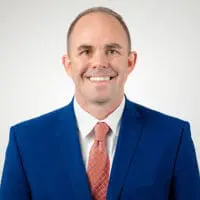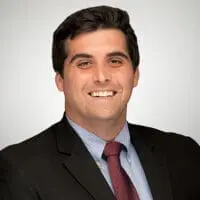Publication
A Big Win for Small Businesses: Biden Administration Announces Further Changes to Distribution of PPP
By Brett W. Johnson, Eric L. Kintner, Michael Calvanico and Mary Colleen Fowler
In the wake of COVID-19, small businesses have faced unique challenges and hardships. In response, the government created a federal relief program under the CARES Act, the Paycheck Protection Program (PPP), aimed toward granting forgivable loans to small businesses to try to help them survive during the pandemic with a program end date of March 31, 2021. Since its inception, the PPP received criticism for distributing money to large corporations in greater magnitude than to smaller businesses less equipped to weather the COVID-19 crisis. In response to these criticisms, the federal government has continuously tweaked the program in order to more effectively allocate relief funds. On February 22, 2021, the Small Business Administration (SBA) announced further changes to the PPP in order to ensure that the “smallest of small businesses” can obtain federal relief during the continued COVID-19 crisis.1 PPP applicants and recipients should consider their individual circumstances as to the impact of the on-going changes to the relief program.
To promote equitable relief for the “smallest of the small”, the SBA have further adjusted implementation of the PPP.2 Beginning February 24, 2021, businesses with more than 20 employees will not be approved for PPP loans for a two-week period to better provide low and moderate-income, rural, urban, and other underserved areas access to PPP funds.3 This temporary restriction on businesses with more than 20 employees seeks to ensure that the PPP is providing relief to those small businesses.
Additionally, the SBA announced several other changes to the PPP that will be implemented in the first week of March.4 First, the PPP loan calculation will be revised to provide independent contractors, sole proprietors, and self-employed individuals with greater financial support. Because the PPP’s funding formula was based on the number of the borrower’s employees, it typically provided no money to these types of small businesses. The actual details of this formula adjustment are still pending, but the Biden Administration has further committed to establish a $1 billion set aside for businesses in this category without employees located in low and moderate income areas.
Second, the application process will be changed to allow individuals with non-fraud-related felonies to apply for PPP funds. As currently constituted, a business would be ineligible for a PPP loan if it is at least 20 percent owned by an individual who has either: (1) an arrest or conviction for a felony related to financial assistance fraud within the previous five years; or (2) any other felony within the previous year. The new rules would eliminate the second restriction above unless the applicant or owner is incarcerated at the time of the application.
Third, individuals delinquent on student loans will now be eligible for PPP loans. Finally, non-citizen small business owners, who are legal residents, including Green Card holders and those on visas, will now be eligible to apply.
PPP funding is set to expire March 31, 2021. Although the Biden Administration has not indicated whether it will extend the program past the end of March, the Administration’s recent decision to target distribution for underserved borrowers signals its support of the program, at least for the short-term. Nevertheless, if and likely when PPP does come to an end, the Administration is already seeking other means of issuing federal relief, such as the American Rescue Plan economic stimulus package.
As of March 4, businesses with 20 or fewer employees can still exclusively apply for PPP loans. Once the two-week moratorium lifts, small businesses with more than 20 employees will be able to apply for loans until March 31, 2021.
Of note, government regulators and law enforcement are paying careful attention to the PPP and bringing criminal and civil actions against those individuals and entities that are perceived as violating the various relief programs. Companies should consider all the various factors as they apply for and accept such governmental relief.
Footnotes
-
SBA Prioritizes Smallest of Small Businesses in the Paycheck Protection Program, SBA (Feb. 22, 2021), https://www.sba.gov/article/2021/feb/22/sba-prioritizes-smallest-small-businesses-paycheck-protection-program.
-
FACT SHEET: Biden-Harris Administration Increases Lending to Small Businesses in Need, Announces Changes to PPP to Further Promote Equitable Access to Relief, The White House (Feb. 22, 2021), https://www.whitehouse.gov/briefing-room/statements-releases/2021/02/22/fact-sheet-biden-harris-administration-increases-lending-to-small-businesses-in-need-announces-changes-to-ppp-to-further-promote-equitable-access-to-relief/.
-
Id.
-
Id.
About Snell & Wilmer
Founded in 1938, Snell & Wilmer is a full-service business law firm with more than 500 attorneys practicing in 17 locations throughout the United States and in Mexico, including Los Angeles, Orange County, Palo Alto and San Diego, California; Phoenix and Tucson, Arizona; Denver, Colorado; Washington, D.C.; Boise, Idaho; Las Vegas and Reno, Nevada; Albuquerque, New Mexico; Portland, Oregon; Dallas, Texas; Salt Lake City, Utah; Seattle, Washington; and Los Cabos, Mexico. The firm represents clients ranging from large, publicly traded corporations to small businesses, individuals and entrepreneurs. For more information, visit swlaw.com.




